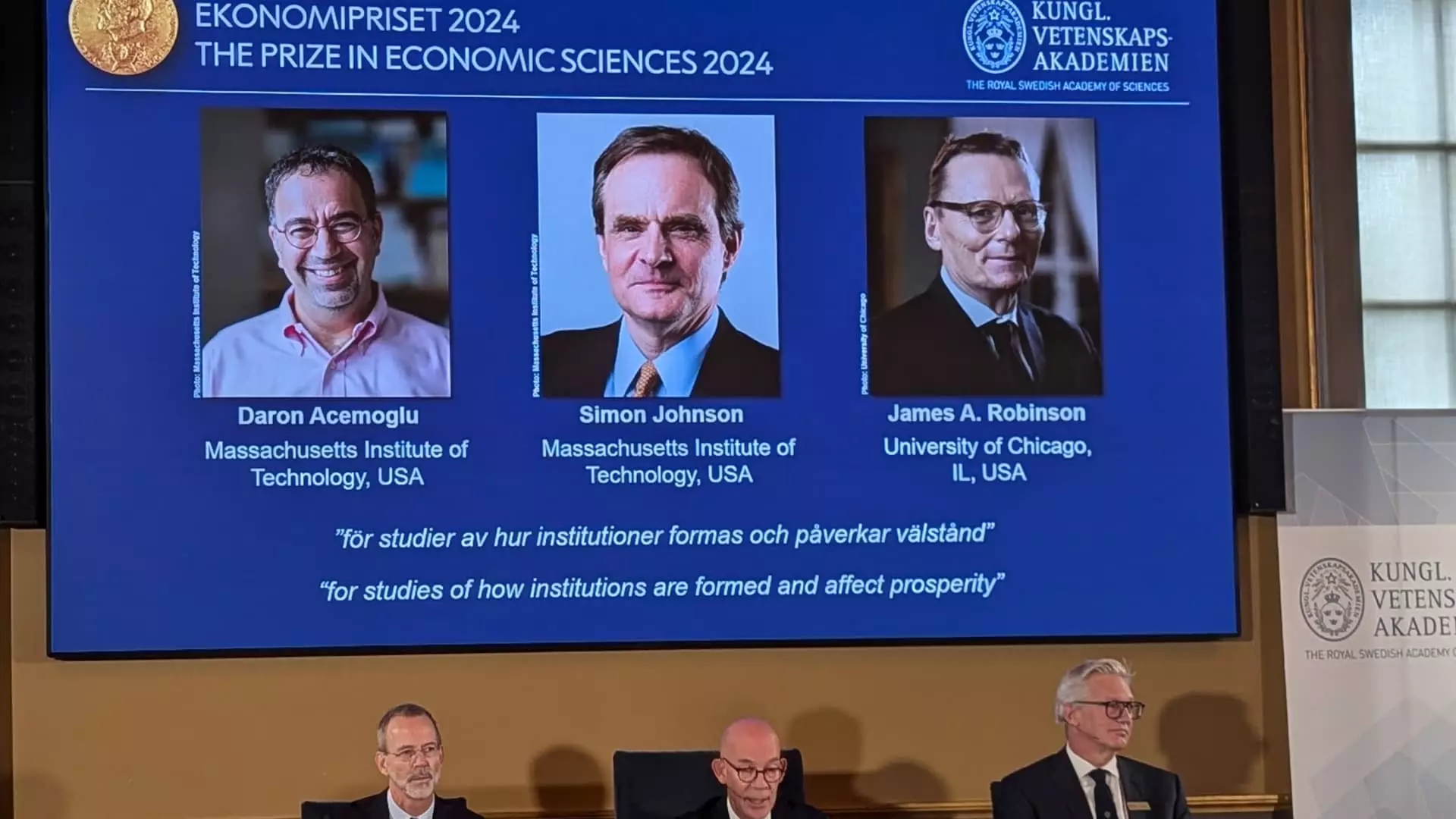The recent awarding of the Nobel Prize in Economic Sciences to Daron Acemoglu, Simon Johnson, and James Robinson has reignited discussions around global wealth inequality. The Nobel committee highlighted their contributions to understanding the stark economic disparities between nations, asserting that “poor rule of law and exploitative institutions” significantly hinder growth. As these economists dissect the complex interplay between societal institutions and prosperity, their work serves as a beacon for policymakers and scholars alike, aiming to bridge the considerable gap between affluent and impoverished regions.
Acemoglu and Johnson, both prominent figures at the Massachusetts Institute of Technology, alongside Robinson, who leads the Pearson Institute at the University of Chicago, have a formidable academic pedigree. Their collective expertise, particularly in the spheres of governance, economic policy, and historical context, positions them uniquely to tackle the enduring problem of inequality. Their influential book, “Why Nations Fail: The Origins of Power, Prosperity, and Poverty,” addresses the historical roots of economic outcomes and argues compellingly that the institutional framework within societies is a decisive factor in their ability to accrue wealth and foster development.
At the heart of the Nobel-winning research lies the assertion that institutional integrity—or the lack thereof—plays a pivotal role in wealth generation. The observation that the wealthiest 20% of nations are approximately 30 times more affluent than the poorest suggests that the economic systems in place vastly impact growth trajectories. The research delves into the legacy of colonialism, positing that the political and economic frameworks established during colonization have long-lasting implications, often resulting in countries that were prosperous during their colonizers’ reign becoming some of the most impoverished today.
The Nobel committee noted how the economic systems imposed by colonizers perpetuated exploitation, enabling a cycle that favors wealth accumulation by a select few while systematically marginalizing others. Thus, understanding modern economic disparity requires a historical lens that considers the legacies of governance, legal systems, and economic policies.
Justin Svensson, an eminent economist, underscored the urgency of addressing this inequality in contemporary discussions. As the gaps between wealthy and impoverished nations deepens, it remains imperative for economists and sociologists to investigate and propose solutions that engage with the economic, political, and cultural dimensions steering these disparities. The contributions of Acemoglu, Johnson, and Robinson provide a significant springboard for these conversations, encouraging comprehensive inquiries into how entities interact within their ecosystems.
The assertion that societal institutions bear the weight of growth opens avenues for reevaluating governance structures across different regions. Application of their empirical and theoretical frameworks may enable countries to revive their economic models. Striving for inclusivity in economic policy, as promoted by the awarded scholars, could serve as a foundational principle for emerging economies seeking to foster growth.
The ongoing investigation into the roots and ramifications of inequality insists that the academic community retains a steadfast focus on these issues. While the research by Acemoglu, Johnson, and Robinson has laid critical groundwork, it remains crucial to build upon these findings. Future exploration could delve into more specific case studies of nations’ trajectories, allowing for a deeper understanding of what practices foster egalitarian growth and which perpetuate ingrained disparities.
Additionally, policymakers must pay heed to the theoretical models presented by the laureates to implement effective reforms. Learning from the past, with its lessons on governance, legal frameworks, and economic policy, could empower countries in their pursuit of a more balanced and equitable future.
The Nobel Prize awarded to Acemoglu, Johnson, and Robinson underscores the indispensable role of institutions in shaping economic landscapes. As the world faces an urgent and persistent challenge of inequality, their insights not only provoke critical dialogue but also inspire action, urging a collective effort toward more equitable global prosperity. In fostering deeper understandings of history, governance, and institutional effectiveness, we enhance our capacity to rectify the economic imbalances that still mark our world today.

Leave a Reply